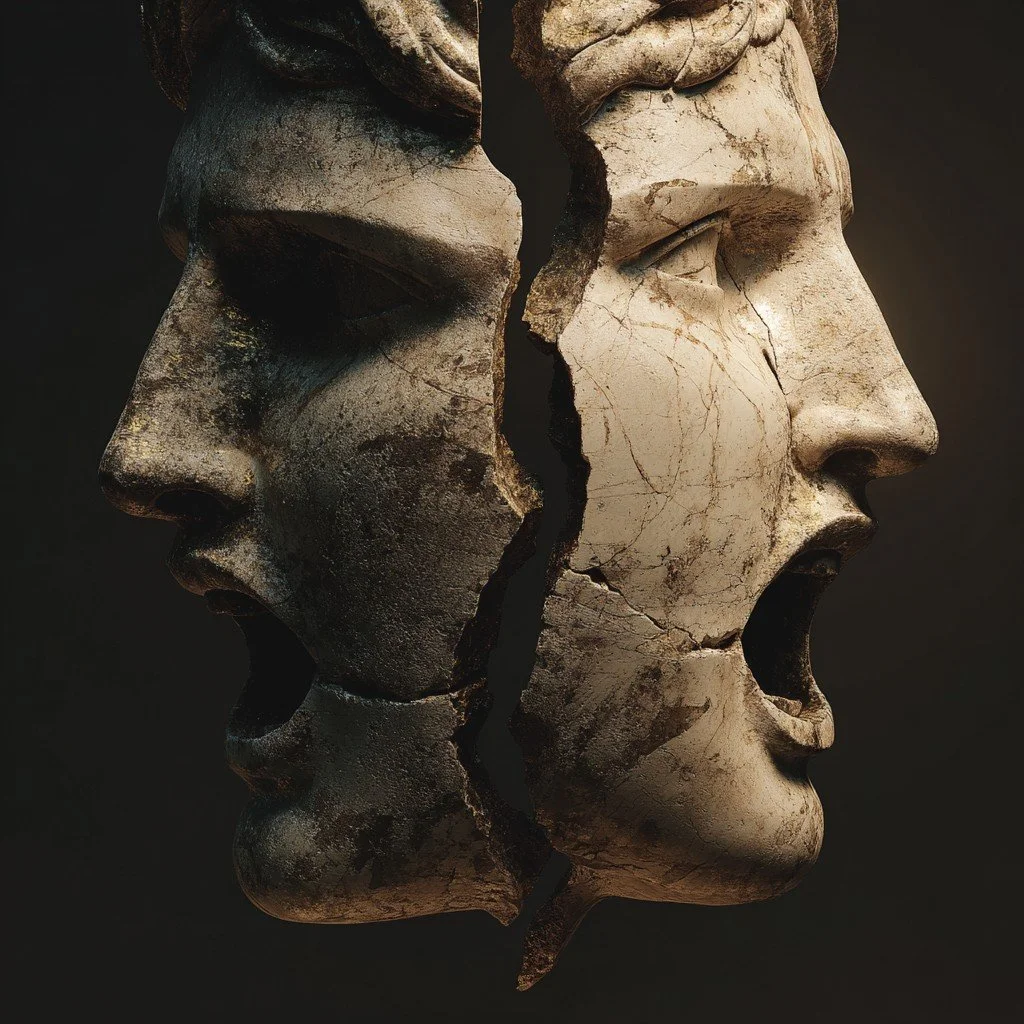The Death of Nuance
With every passing day, it feels like we’re finding it more and more difficult as a society to discuss real, complex issues with the depth and nuance they demand. Not just to understand the challenges we face but also to understand each other. Absent the ability to think deeply about the full complexities of any given topic, we’re woefully ill-equipped to find solutions to some of society’s most pressing challenges.
In today’s world we crave simplicity. It’s the age of short clips, soundbites, and reaction posts where we’ve become conditioned to expect immediate conclusions and black-and-white answers. Yet the real issues, the ones that influence our lives, communities, and future, rarely live at the extremes. They exist in the vast, uncomfortable, grey middle ground of nuance, competing ideas, and messy realities. Unfortunately, this is also the space many seem unwilling or unable to play in.
Are We All Just in a Shouting Match?
Scroll through any social platform and it won’t take long to find either a deliberately inflammatory post designed to provoke outrage, or a thoughtful one met with hostility because people aren’t willing to engage deeply. Instead of meeting in the middle to challenge the ideas rather than people, it all quickly descends into “I’M SHOUTING AT YOU”
Insert a generic response into my capitalisation and it’s not dissimilar to what you’ll find in thousands of interactions daily. Once people pick a side, they tend to stick with it rigidly, defending even the indefensible while treating those on the other side with disdain. It’s almost surreal watching exchanges between people who clearly understand little of the topic they’re debating yet they argue with unshakeable conviction that everyone else is wrong. It’s the Spider-Man meme come to life, all pointing at each other, all wrong, and all certain the fault lies elsewhere.
This isn’t just tiresome though, it’s intellectually lazy and socially corrosive. People who wouldn’t say boo to a goose turn into keyboard warriors, emboldened by distance and dopamine. Online allegiance becomes a substitute for actual thought, and tribalism quickly hardens into their established identity.
Ego and defensiveness have blinded us to an uncomfortable truth that it’s entirely possible to hold two conflicting ideas in mind at once. The ability to navigate complexity and acknowledge both sides of an argument used to be a sign of maturity and intelligence. It used to be that people steel-manned opposing views to strengthen their own. Now, many seem afraid to do so, no doubt some of them aware that it might expose cracks in their position, which is a reality they’re not willing to face. The pursuit of truth has taken a back seat to the preservation of pride and ego.
I can’t claim to be completely innocent of falling foul to ego over the years. Especially in my younger adult years, ego often got the better of me. Sometimes it takes being humbled and being proven wrong though to realise that growth only comes from acknowledging our blind spots. Sadly, today, faced with the choice between doubling down or admitting fault, most choose the former. The cost isn’t just personal growth but truth itself.
Perhaps, though, we shouldn’t be surprised. Watch the exchanges in the House of Commons and you’ll see the same behaviour; shouting, jeering, point-scoring. It’s less debate or even theatre anymore, it’s just a noisy rabble. If society mirrors its leaders, maybe we should take a moment to reflect on what example this sets. If this behaviour took place or takes place on the streets or town centres, we condemn it yet in Parliament under the guise of “tradition” it’s deemed excusable. At what point do we question whether such a tradition still serves a purpose for pursuing civil discourse on important issues?
Complexity Requires Better Thinking
The real world is filled with real, complex issues that try and you may (and some try incredibly hard) defy simplification. They’re multi-layered, nuanced, often contradictory, and rarely resolvable without serious time, effort and focus. Progress requires that we have the willingness and sometimes courage in the face of those shouting for a quick answer to sit in the discomfort of uncertainty. To think about things from multiple angles, opinions and viewpoints. To test our assumptions and hypotheses and to remain humble enough to change our views as facts and evidence evolve.
If we’re going to enter the battlefields of debate on politics, economics, ethics, or societal change armed only with emotional triggers and pre-loaded talking points, we’re destined to descend into chaos with no sign of resolution.
We don’t all need to become philosophers (though the world could use a few more right now), but we do need to rediscover the roots of critical thinking, civil discourse, and rigorous debate. It should be entirely possible to sit across from someone you vehemently disagree with and still have a frank, respectful discussion. To be able to walk away still disagreeing, but with a genuine appreciation of the strength of one’s argument and that of your sparring partner.
History has shown us what happens when societies lose that capacity for dialogue. Words get replaced by actions, and actions quickly descend into violence.
Closing Thoughts
Real issues are complex because life is complex. Pretending otherwise, whether out of laziness, ignorance, or blind allegiance doesn’t change the truth, it merely distances us from it.
We can’t expect to solve that which we refuse to understand, and we can’t reach understanding whilst we’re busy shouting past one another.
It’s time we rediscover and maybe for some discover for the first time that truth often lives between extremes. We need to be willing to sit in that space long enough to explore it honestly. Until we do, we’ll keep looping through the same tired cycles. Governments shouting past each other, people shouting past each other, all chasing away the sane, rational minds that are patiently waiting to engage once sane, level heads are ready to prevail again.

